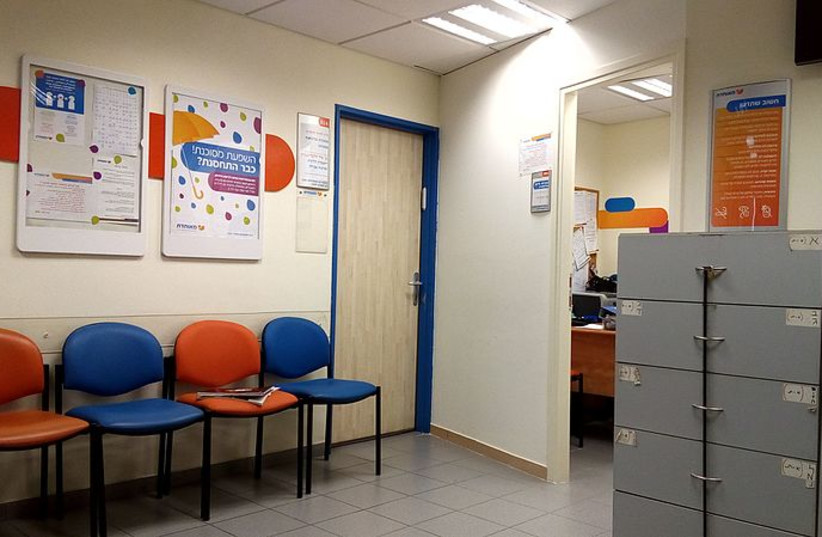Over a decade ago, the Health Ministry divided up the 900 well-baby (tipat halav) clinics around the country so that some were owned and run by the four public health funds, others by the Jerusalem and Tel Aviv Municipalities, and the rest by the ministry. The aim was to save money, but the result was a hodgepodge: a lack of uniform funding and standards, supervision, and practices.
The Knesset Health Committee discussed these problems at a session on Tuesday. They were told that. 44% of the clinics in the country belong to and are operated by the ministry, 5.5% are operated by the two municipalities, and about half by the Clalit, Maccabi, Meuhedet, and Leumit health funds.
The division triggered complaints when the health insurers took over clinics on the basis that babies, toddlers, and preschoolers from birth to age six should not be examined – for their weight, development, hearing, spine, and other factors, and given vaccines – in the same buildings where sick patients were treated. The clinics nurses also advise mothers, test for post-partum depression, and do follow-ups about domestic violence.
According to committee chairman and Shas MK Yonatan Mishraki, the Health and Finance ministries must decide on the desired operating method for the well-baby clinics nationally. He also called on the Health Ministry to compensate the municipalities that took in evacuees for the extraordinary expenses due to this treatment

According to Hedva Kaplinsky, an economist at the Knesset’s Information and Research Center, there are 39 Tipat Halav stations in Jerusalem, 34 of them owned and operated by the municipality, and 15 municipal clinics in Tel Aviv. In the financing of the clinics operated by the Jerusalem and Tel Aviv municipalities, 70% of the budget is covered by the ministry and 30% by the municipalities. This division is anchored in an agreement signed between the parties in 1972.
Itzik Larry, director-general, of the Jerusalem Municipality, spoke about the challenges unique to Jerusalem. “This is a difficult service to operate with diverse populations, and the state must bear all the costs of the stations. We approached the Health Ministry seven years ago with a demand for funding NIS 64 million for extraordinary expenses in the clinics.”
Naama Ron, director of the Tel Aviv Municipality’s public health department, added that the city’s additional investment in the stations goes beyond the budget and the services, and according to her, the success is evident in the public opinion polls of the residents.
Hila Djerbi, an economist at the Center for Local Government, emphasized that municipal funding is usually provided for the ongoing operation of the station’s building, and even according to her, the Health Ministry should cover overall funding.
Ilana Gans, from the Health Ministry’s public health branch, said that about 200 local authorities operate such stations, with the infrastructure of the building budgeted by the local authority and the operation of the personnel and equipment by the ministry. She declared that the advantage of the operation by the authority itself, as in these cities, is their strong connection to welfare factors. She maintained that her ministry is examining the desired operation of the stations due to the difference in the provision of services at the various stations, and the issue will be decided in the coming year. The municipalities will be compensated for the excess funding in the treatment of evacuees, she promised.
Ministry deputy director-general Haim Hupport added that the two large municipalities will continue to operate the stations, as they see them as a matter of great pride, but responsibility for the budgets must be settled.
Tamar Chin, the health liaison in the Treasury’s budget department, emphasized the complexity of the issue and the need for a decision to avoid duplication and focus on efficiency. The government has established a team with the participation of the two relevant ministries to find a solution.
Maccabi’s public health and Tipat Halav director Rahel Fisch said the split responsibility for operating the clinics among different parties has notable disadvantages, such as the duplication of infrastructure, lack of a therapeutic sequence, and difficulty in providing a uniform service.
Therefore, she urged that all the clinics should be transferred from the Health Ministry to the health funds, because “they have more experience and a sense of service and optimal expertise. Their nurses and doctors have access to the whole medical file of the patient and their family members. Also, in terms of accessibility to information, the move would allow for continuous and more efficient service, even after preschool age.”
